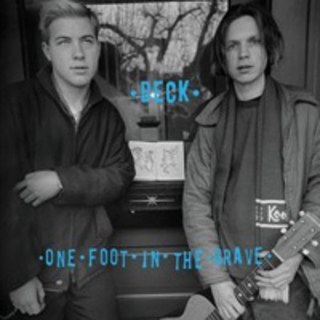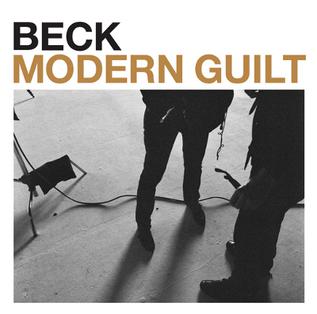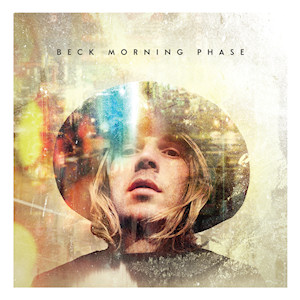Mutations: A Retrospective of Beck
Click on the streaming service of your choice below to listen to the playlist as your read along.
The Playlist
Loser
Fuckin' with My Head (Mountain Dew Rock)
Beercan
Burnt Orange Peel
Hollow Log
Devil's Haircut
Lord Only Knows
The New Pollution
Cold Brains
Lazy Flies
Tropicalia
Mixed Bizness
Hollywood Freaks
Pressure Zone
Paper Tiger
Lonesome Tears
Sunday Sun
E-Pro
Que'Onda Guero
Girl
Think I'm In Love
Nausea
Dark Star
Gamma Ray
Chemtrails
Profanity Prayers
I Won't Be Long
Say Goodbye
Blue Moon
Waking Light
Dear Life
In the history of art there have always been artists, a few in every generation, that have operated in their own space, owned their own course through their creative journey, and achieved success by bringing people to them. Few exemplify that profile better than Beck Hansen. When he won the best album Grammy in 2015 everyone was surprised – many because they had no idea who Beck was, and many because they’d been following his career and never envisaged him as a Grammy-winning, broadly appealing type of artist (though he’d previously won Grammy’s in the alternative categories). However, as that uniquely independent artist, it’s easy to understand those differing views.
Beck was born to artist parents, his father composed and arranged music for film and TV while his mother was part of the Warhol factory crowd in New York, who divorced when he was ten. He grew up in struggling neighbourhoods in LA and found himself shuttled to the likes of Kansas and Europe to live with relatives. In LA he was exposed to the Latin music of the neighbourhoods in which he lived and the burgeoning hip hop scenes, yet also developed a love for folk and early blues. He began playing folk on the LA streets and dropped out of school. After a brief stint in New York playing in the alt-folk scene he returned once again to LA in the early ‘90s.
A young Beck Hansen
Broke, near-homeless, and making his way through impromptu performances and a wild diversity of folk, improv, and performance art, Beck gained supporters who helped him record some demo tapes and introduced him to independent labels that might be open to his forms of folk and hip hop. It was through these connections that he signed with indie label Bong Load Custom Records who in turn introduced him to rap producer Carl Stephenson. It was with Stephenson that Beck would professionally record his first single, a song that would set him on a wondrous journey.
Loser; Fuckin' with My Head (Mountain Dew Rock); Beercan \ Mellow Gold (1994)
That first single was, of course, “Loser,” but for Beck it wasn’t the type of song he was focused on and he returned to his folk music, continuing to record and release songs of that nature, including a folk album, Golden Feelings, on indie label Sonic Enemy. Meanwhile, via a small pressing by Bong Load, “Loser” began to be picked up by local LA radio stations. The song caught on through 1993 and brought fans and major label attention, with demand overwhelming Bong Load’s ability to press enough copies of the single. After entertaining different offers, Beck struck a sweet deal with Geffen Records that allowed him an unusual amount of creative freedom and a non-exclusive condition that meant he could release music outside of the contract.
This contract allowed him to release a second indie album of alt-folk songs, Stereopathic Soulmanure, in early 1994, just a week or so before his major label debut for Geffen, Mellow Gold. There are few artists of any era, much less the 1990s, that could simultaneously release music both independently and on a major label. It’s evidence of how independent and unique Beck was, and frankly remarkable given his low-income upbringing that he would be so and not inclined to dutifully give himself over to the major label and the prospect of fame and fortune.
The success of “Loser” paints this dichotomy for Beck rather starkly. In 1994 the grunge era had asserted itself forcefully on the music landscape, creating the last era of rock-driven mainstream music. This was the music of ‘Generation X,’ the supposed inheritors of the Baby Boom generation’s prosperity and individual freedom. Supposedly bereft of meaning and ambition in a materialistic and shallow world that gave them everything, the younger generation would be labelled ‘Slackers,’ and songs like Radiohead’s “Creep” and then Beck’s “Loser,” with their insouciant delivery and air of self-loathing, would be claimed as the anthems of the Slacker generation. Almost emblematic of their affiliation, these artists would decry the association and the resultant success and attention these songs brought. As someone who had worked hard to get off the streets, Beck had no interest in being labelled a Slacker. Regardless, “Loser” struck a chord with the young generation, which propelled it to #10 in the US chart, #1 on the alternative chart, and into the heights of other charts around the world.
Mellow Gold is an unlikely LP for success, which it was by reaching #12 in the US (and top ten in Canada). Clearly driven by the success of “Loser,” which was the first track, it’s an album that, not surprising given Beck’s musical journey and influences to that point, moved through multiple genres and was filled with experimentation. “Loser” stands tall as the most creative and listenable song on the album. Riding a catchy and unusual combo of a break-beat and a slide on acoustic guitar, Beck raps, speaks, and chants through the song. It is still the best distillation of his folk and hip hop upbringing and even today, stands apart as a unique and iconic song of the modern rock era. And so it went with the rest of the album, with a mix of folk, rap, hip hop, and odd musical interludes. “Pay No Mind” sounded perhaps what Neil Young would produce if he’d tried to get a little funky, which was then followed by the psychedelic, “Fuckin’ with My Head (Mountain Dew Rock).” The only verifiable pop-sounding song on the album was the irrepressible, “Beercan,” which paced up the slacker vibe as Beck rapped through a rolling bassline and a great, Motown-like drum beat broken up with samples. I had only bought the CD-single for “Loser” until I heard “Beercan,” and then realized I needed the whole CD to hear what this ‘Beck’ was all about.
Burnt Orange Peel; Hollow Log \ One Foot in the Grave (1994)
As he toured to his newfound success in 1994, indie label K Records released an album of material Beck had recorded prior to Mellow Gold. It didn’t chart and was swept aside with the success of the major label release, but I include these two short songs to give an idea of what Beck’s early, indie music sounded like. It’s mostly folk focused and very different for the time, and while you can hear many of the elements found on his major releases, it’s more stripped down and much harder to warm up to, lacking the catchy beats and melodies of his better-known work.
Devil's Haircut; Lord Only Knows; The New Pollution \ Odelay (1996)
Beck, who always seems lacking expression and eternally bored, and “Loser” were so tailor-made to be an anthem for the Slacker generation, an element of the press and music scene dismissed him as a novelty or a manufactured product. His performances sought to dispel such notions, drawing on his improv and unstructured musical past to provide performances as unpredictable and, likely, as unpalatable as such an approach might risk. This didn’t help endear doubters to him, who wondered how serious and sustainable such an artist could be. The only way Beck could escape this dynamic was to get back in the studio, make more music, and move beyond the albatross of “Loser.”
The result was his second major label release, Odelay. It’s safe to say this album dispensed with any further notions of him being a novelty act or a one-hit wonder and set him up for continued respect and success. This is not to say, however, that it presented Beck as a more traditional or categorical artist. It’s a great album, subject to some inconsistency, but undoubtedly a major step forward from Mellow Gold.
The first single was “Where It’s At,” a song I’ve never warmed up to and which followed closely the hip hop vibe of the first album. Rapping through a bluesy organ and beat with ‘80s-style hip hop interludes, the song only reached #61 in the US and #5 on the Alternative chart. The second single and the lead song on the album, “Devil’s Haircut,” was something else altogether. Leading with a great, rock-edged guitar, more funky and breakbeat drums, and harmonica flavours, the song was simply unlike anything else around and was catchy as hell. Yes, there’s a lot of the “Loser” feel to it, but it was fresher, rid of the self-loathing, and more assertive in its delivery. It sounded like a song from an artist with confidence and swagger. Beck would not be anyone’s product or a mouthpiece for disaffected youth. Two more singles would be released, “Sissyneck” and “Jack-Ass.”
The rest of the album is very solid and there aren’t the dead spots and less accessible and indulgent moments of the prior album. “Lord Only Knows” is indicative of the strong type of deep tracks found on the album, as the country-tinged guitar is heard here as it is throughout the rest of the album. It also revealed Beck’s increased confidence with his singing, as he sang on this track as opposed to rapping. There are other very listenable tunes on this album, such as “Hotwax,” “Novacane,” and “Readymade.”
I saw Beck in concert in April of 1997 at the University of Toronto’s Varsity Arena. There were two opening acts, one of which was Atari Teenage Riot who only had one member make it through the border for the show, performing a DJ set instead of largely indecipherable beats and noise. After waiting for a couple hours sitting on uncomfortable wooden bench seats with inadequate leg room (I’m 6’5”), and having been entertained very little, I was pretty grumpy by the time Beck took the stage. He sounded awful and the sound was a mess in the small arena. After hearing four or five songs from Odelay to kick-off the set, including “Devil’s Haircut” and “New Pollution,” I’d had enough and my wife and I left the show. I’ve never been inclined to see Beck again and will be passing again when he hits the Budweiser Stage tonight in Toronto. His live shows have some reputation as being upbeat and entertaining, but it will take a lot to convince me to get out to another show.
I recall Odelay being a significant album of 1996 – certainly within the alt-rock genre. The late 1990s saw a drop-off in good alternative music choices and Beck was one of the few to produce a high-quality album. However, he was indicative of where things were headed, as it’s not the guitar-driven music of the early ‘90s and leaned more heavily into the hip hop vibe which by then was ascendant. While the first three singles got plenty of attention on alternative radio, they only attained the lower reaches of the top 100 of the US charts and the album peaked at #17, five spots lower than Mellow Gold. Though a superior album, Odelay lacked the zeitgeist of a “Loser” to bring it to a higher chart position but did deliver long term success and double the overall sales. It remains Beck’s biggest selling album of his career. He also received a Grammy nomination for Album of the Year and won the Grammy for Best Alternative Music Album.
Cold Brains; Lazy Flies; Tropicalia \ Mutations (1998)
Beck decided to make his next album very quickly, drawing on an older selection of songs he’d written over the years. The quickness of the recording left no time for the extensive sampling and studio experimentation of the last album, opting for more of a live sound. The result was Mutations, which Beck had wanted to release independently on Bong Load, but which Geffen released instead and against Beck’s wishes. This lack of control led Beck to seek a release from both labels, to which they both sued him for breach of contract. The 28 year-old artist was learning that with success, freedom was a fleeting concept. He was now a celebrity and a desired commodity within his industry, which was something in which he grappled.
Mutations was understandably a very different album than the first two. It was more low-key, less jarring from song to song and therefore more cohesive, had many lovely musical moments, but also lacked the excitement and originality of his prior work. None of the three singles charted but the album reached #13 in the US, almost equalling the chart success of Mellow Gold. This was indicative of Beck’s growing and entrenched following. However, this chart success wasn’t equalled in overall sales, as Mutations sold much less than the prior two albums. The Grammys once again honoured him a win for Best Alternative Music Performance.
The lead single was “Tropicalia,” a Latin-flavoured, samba-like tune with horns that was unlike anything heard before from Beck. His ability to experiment with genres while still holding to his overall vibe was impressive. Lacking the folk and hip hop elements his fanbase was used to, the response was muted. “Cold Brains” was the second single and more indicative of what can be heard on the rest of the album. It’s a lovely, melodic song of a style that would be heard more and more from Beck in the ensuing years. His ability to produce rich melodies that rode deep, blues-based, bass and acoustic guitar compositions became one of Beck’s signature sounds and has offered some of his most rewarding listens over the years. This song was one of the first to reveal this talent.
Mixed Bizness; Hollywood Freaks; Pressure Zone \ Midnite Vultures (1999)
Beck’s sixth album and fourth for Geffen again saw him experimenting with new musical styles, this time amping up the dance groove. The first two singles, “Sexx Laws” and “Mixed Bizness” led with dance beats, sampling, funk-laden grooves and horn blasts. The goal was to create an upbeat album that incorporated the R&B and hip hop sounds that were dominating the charts in the late ‘90s. As much as there was plenty in the album that related to his prior work, overall it was such a change in demeanour for Beck that his fans were slightly taken aback - again. Regardless, it was the third solid album for Beck, and though he wasn’t setting the charts on fire (the album would peak at #34 in the US and none of the three singles would chart), he was entrenching the reputation as a reliable and entertaining artist. The album was nominated for a Grammy for Best Album but did not win.
I quite like this album and have always been open to Beck’s dancier offerings. The album still has lots of quirks and interesting tidbits to draw your attention. “Nicotine and Gravy” (the third single), “Peaches and Cream,” “Milk and Honey,” and “Pressure Drop” offer a rock-edged tone to his beats and funk sound, while “Hollywood Freaks” and “Debra” channel the pure R&B and soul sounds ranging from the ‘60s and ‘70s to the contemporary offerings. “Debra” sounds like it belongs on a Jackson 5 or Prince album.
The Golden Age; Paper Tiger; Lonesome Tears; Sunday Sun \ Sea Change (2002)
In 2000 Beck broke-up with his fiancée, throwing him into a melancholy that fed his song writing and resulted in another mellow offering as he marked the start of the new century. Sea Change is his best album and most enjoyable listen, offering up one impeccable song after another that is perfect for laid back listens. It is simply a sublime album and I struggle to pick only a few songs from it for this playlist.
Riding a rich and mellifluous bed of strings, Beck’s vocals were subdued and left in the mix as his guitar, the bass, and occasional piano carried the album through a wondrous and dreamy musical landscape. This was the sound hinted at in “Cold Brains” and others on Mutations, now fully realized in a perfect project that fully explored his talent for ballads and harmonious mixes of vocals and instrumentation. The album is also aided by producer Nigel Goderich, known for his work with Radiohead and many others. Goderich had also worked in Mutations, and would later produce or mix Guero and The Information.
The album brought back anyone who had been put off with the funk and R&B of Midnite Vultures, and the album found itself in the upper reaches critics’ year-end lists. Lacking radio-friendly singles (like any classic album, there’s a disconnect in separating the songs from the album) Sea Change still found a strong audience and would reach #8 to be his highest charting album yet and first top ten, a feat he would repeat with every album thereafter. However, in an era of declining sales he would never again be able to reach the heights of Odelay’s multiple millions in sales.
The album was also notable in there was no sign whatsoever of hip hop, the first time he’d fully departed from his roots. There was lots of folk though, drawing instead from his other genetic code, but it was a more traditional and easy-going folk, and not the alt-style leanings of his early efforts in that category. His sadness of the time guided him to reflection and serenity, and not the attitude and challenging sounds which his fans had learned to accept from his albums. For this reason, the album was a remarkable sign of maturity and musical achievement for the 32 year-old singer.
E-Pro; Que'Onda Guero; Girl; Missing; Scarecrow \ Guero (2005)
The aggressive and jarring entry of “E-Pro” to launch the next album told listeners Beck was back to his old self and ready to rock n’ roll along with his dance, funk, and once again hip hop leanings. After Sea Change it was yet another sharp turn in Beck’s musical journey. I prefer to build these retros not just in chronological order but in the order as presented by the album track listings, and while it’s tempting to separate “E-pro” from the mellow finish of the Sea Change songs, I like how the abrupt change in the playlist captures the contrast between the two albums.
For those who had missed the hip hop sound, it was back in full force on this album, this time captured nicely with a Latin flavour on “Que’Onda Guero.” The album also offered greater electronic components as the album was laced with dance and rumbling, bass-driven rhythms – no doubt aided by his collaboration with producers Dust Brothers (who had also worked on Midnite Vultures). The progression in Beck’s writing and performances was wholly evident now, as his albums had a remarkable consistency in quality while still offering up an impressive array of sounds, tempos, and styles. There was something for everyone in Guero as he dipped into all the styles he’d mastered over the prior five albums, and which by now listeners knew to expect this from the irrepressible Beck. The album would come the closest he’d get to a #1, peaking at #2. It was also his third biggest selling album after Odelay and Mellow Gold. It was also clear by then that Beck was not a singles artist, not doing well on the singles charts around the world, though “E-Pro,” as the lead single, reached #65 in the US and #1 on the Alternative chart. It was his best charting single since “Where It’s At,” and with the next single on the album, “Girl” (one of his most pure pop songs ever issued) reaching #100, it would be the last charting single of his career.
Like Sea Change it’s hard to pick songs off this album, so this playlist simply offers the first three songs. There is so much more to explore in the remaining ten songs. This CD lived in my stereo for quite awhile after I picked it up in the summer of 2005. There were the Sea Change styled offerings of “Missing” and “Broken Drum,” the dance songs a la Midnite Vultures such as “Girl,” “Hell Yes,” and “Rental Car,” and now more than ever you had songs that drew on all of his folk, hip hop, R&B, and blues sounds such as “Black Tambourine,” Earthquake Weather,” and the hypnotic “Scarecrow.” Eleven years after his debut, Beck was now experimenting less horizontally and instead deepening his output vertically into the sounds he’d developed since playing in the streets and clubs of LA and New York.
Think I'm In Love; Strange Apparition; Nausea; Dark Star \ The Information (2006)
Beck strikes me as an artist who has been critically acclaimed, appreciated and enjoyed by a great many, but rarely deeply loved. There is a casualness, a detachment, about him and his music that keeps the listener at bay. I know I feel this and wonder if it’s the reason why he has not been more successful given how good his music has been. It’s true that artists that move around a lot musically tend to limit their prospects for upper-echelon success, but I think there’s more to it for Beck. No album better captures this than his seventh major release, The Information.
The album/cd came with stickers so you could decorate the plain cover as you liked
Ironically, this is the album of his I’ve played the most and enjoyed the most. Sea Change is his greatest artistic achievement, but it requires a time and place to be fully appreciated. The Information is just fun, engaging, and thoroughly enjoyable from start to finish. It did well, peaking at #7 in the US, but failed to match the overall sales of any of his prior major releases. Sure, this was in an era of declining sales, but it was only a year after Guero, was largely recorded through the same recording sessions as that album (and again with Dust Brothers), and yet only clocked about 60% of the prior album’s sales. Like other aging artists, Beck was losing his core audience and not grabbing enough of a new one, despite having issued a great album whether critics agreed or not (they were mixed).
A challenge with the new album was there was nothing new. While it might have been another in a run of four outstanding albums for Beck, unlike the others there wasn’t any experimentation or intrigue for the core fans. So while his prior experimentation kept the casual fan aloof, his lack of it was now flattening out his growth. As they say, you can’t please all the people all the time, and thus is Beck. I doubt he cares, because if there is anything certain about Beck, it’s that he does his own thing and isn’t concerned about the trappings of chart placements, sales, or fitting into any broader trends or scenes.
What The Information did have going for it was simply being an incredibly consistent, quality album. Every song was pure Beck, delivering all his signature elements of folk, hip hop, blues, rock, and pop in tightly orchestrated, catchy, and lively songs. I initially picked six songs for this playlist and agonized to get it down to three (though I have no hard and fast rules about these playlists, I do try and keep them to a reasonable length with a little balance through the artist’s career – and the initial playlist for Beck was over 50 songs since there is just so much to choose from). The singles from the album were “Nausea,” a funky tune, “Cellphone’s Dead,” a trippy, hip hop song, and “Think I’m In Love,” an offbeat pop-blues track. None of the songs charted other than middling spots on the Alternative chart. I’ve focused on the US charts for Beck since he hasn’t charted much internationally and he’s never cracked the top ten in the UK with a single and only his last three albums of his career have gotten that high.
Beyond the singles there was the opener, “Elevator Music,” another trippy hip hop song, “Strange Apparition,” a fantastic pop-dance song, “Soldier Jane” that put a dance vibe onto his Sea Change sound, “No Complaints” that hypnotized with a folk-blues rift, and “Movie Theme,” a synth dream pop song that channelled Radiohead (perhaps because the album was produced by Nigel Goderich, who produced Ok Computer?). The only real miss on the album was the inexplicable inclusion of a ten-and-a-half minute final song that blended elements of the album’s songs into an annoying and pointless concluding track that finished with a computer-spoken word piece over a moody, atmospheric soundscape.
Gamma Ray; Chemtrails; Profanity Prayers \ Modern Guilt (2008)
As Beck approached his fortieth birthday, working on his tenth album and eighth major label release, he seemed to be more open to collaboration and letting others into his creative realm. He had always utilized many musicians in his recording process, but for his next album he joined up with Modest Mouse and found an intense and rewarding working relationship as they recorded his next album.
The album was another great one, this time keeping in a tighter, pop sound with a smaller track listing and generally shorter songs. It’s probably Beck’s purest pop album, and he was rewarded with a #4 spot in the US chart and his first top ten finish in the UK. The singles, “Chemtrails,” “Gamma Ray,” and “Youthless,” did not chart. It was another album in which I struggled to edit out songs for this playlist. “Gamma Ray” and “Chemtrails” are fantastic songs, each drawing on different moods and energies, yet both firmly planted in the foundation of Beck’s sonic world. “Replica” was a sublime, psychedelic, and moody piece that only Beck could make work, riding an off-kilter drum track, while “Profanity Prayers” was one of his first all-out rockers in some time, with a catchy, propulsive rhythm. The album finished with “Volcano,” another of his lovely ballads.
Beck received another Grammy nomination for Best Alternative Album, but like The Information critics seemed to be growing tired of what Beck was offering. It was favourably received but no one was raving. I think after Sea Change everyone was waiting for another milestone offering. Yet an artist nearing the end of their second decade in circulation, especially after a peak start, is rarely given the fair hearing their music deserves unless they break into a new genre (and even then it’s likely to be treated only as a novelty).
I Won’t Be Long (2013)
After Modern Guilt Beck had fulfilled his contract with Geffen and not surprisingly opted to go independent. He retreated to his home studio in Malibu and began recording a variety of projects with different artists. Songs trickled out in singles and in soundtracks: he provided four songs for the movie Scott Pilgrim vs. the World in 2010 but all the songs were attributed to the fictional band within the movie; there was a single for The Twilight Saga: Eclipse; and another for the minor, low-key film, Jeff, Who Lives at Home (amusingly a modern take on the slacker vibe in which Beck inaugurated his musical career). “It Won’t Be Long” was one of four singles released over 2012 and 2013, none of which were particularly outstanding though this was had decent vibe.
Say Goodbye; Blue Moon; Waking Light \ Morning Phase (2014)
Beck finally got around to releasing a new album, a long six years after his last album and a figurative Death Valley of a span in the modern music industry. The arrival of the new album was likely spurred by him having signed with Capitol Records in late 2013. The album had a distinct sonic (and personnel) connection to Sea Change, but while it was a lovely album, it failed to equal that original record’s overall quality. Morning Phase had more of a moody, pop feel to it and lacked the ability to lose you into the deep soundscapes like Sea Change had done. The album had some plainly dull moments and songs that ended before you’d fully grasped you were listening to them, but those are but a few, and the album also had many beautiful and rewarding listens. Regardless of whether intended or not to be paired with that seminal album, Morning Phase and Sea Change are joined within Beck’s discography as the two outliers that capture his great moody, bluesy, ballad sound.
What can be appreciated about Morning Phase was that, after three consecutive upbeat and dance-filled albums, Beck gave his audience something different to sink their teeth into and provided a break from hip hop to give his folk and blues sounds a good airing. Critics responded favourably and it led to the 2015 Grammy win for Best Album that raised more than a few eyebrows. After all his failed nominations and wins in the Alternative categories, he finally won in a spotlight category, and with one of his subdued albums. In an era when such focus is put on the mega R&B and hip hop stars of today, seeing a scrawny and dishevelled Beck step up to win was an intriguing site for the ever-dull Grammy enterprise. Just seeing Kanye West get his knickers twisted over Beck’s win was fun enough.
Dear Life \ Colors (2017)
Late last year Beck issued his newest album, the one he’s currently touring and brings to Toronto this weekend. After the laid back feel of Morning Phase, it should be no surprise this is an all-out pop-dance record. And while we’ve heard this sound from Beck before, this time it’s more pop, more polished, and more dominant through the album than anything he’s issued before. For a fan of my tastes, this is not the Beck that appeals to me and after a few listens I’m inclined to label this his poorest major label album. As is usually the case when I don’t like something, it is one of his highest charting albums having reached #3 in the US. Indicative of our streaming times, it’s sales are a mere pittance compared to the rest of his discography.
Also indicative of the times, the album has issued five singles, the first going back as far as 2015. His hip hop elements are now very ‘of the moment’ and fit in with the rhythm-based tunes like “Wow.” The singles “Dream” and “Up All Night” are unabashed dance-pop songs that are almost unrecognizable as Beck. I would have preferred he’d given these songs away to some young artist because they would have been smash hits if some young heartthrob had recorded them – and I wouldn’t have had to encounter them on a Beck album. As it stands I had to dig deep to find the likes of “Dear Life,” which draws on his harmonies and dance vibe with a little rock guitar to give us something more akin to a true Beck song. “Fix Me” is a ballad that is also ok, but I wonder if it was a leftover from Morning Phase that didn’t make the cut and instead received the pop-dance workover for this album.
I might fear that this album suggests Beck is going the way of Coldplay, a once great band that is unlistenable today in pursuit of current audiences, but if history has shown us anything with Mr. Hansen, it’s that he doesn’t often do the same thing twice in a row. There will be a twist of something different on the next album.
Beck Hansen is one of the most intriguing stories of the modern rock era, and few artists have forged as singular a path of creative expression. As a semi-destitute young white man, he managed to find a place for himself among the unlikely genre of hip hop music while bridging it to folk music through a modern and aggressive take. Add some dance, soul, blues, and funk and you have Beck – a modern artist giving us new approaches to the older forms. By not fitting into any one genre he’s built a broad, but perhaps thin, coalition of critical and audience appreciation that has given him a very successful career without ever having managed a #1 song or album. He started with a sensation of a first single, a landmark album in Odelay, and then sustained his career with an impressively consistent and engaging list of albums over the ensuing twenty years, highlighted by Sea Change, one of the best albums of the modern era. Beck has something for everyone, and if you haven’t dove into his music before, you’re in for a pleasant, surprising, and ultimately rewarding exploration. He is a multi-Grammy Award winning artist, after all.
























